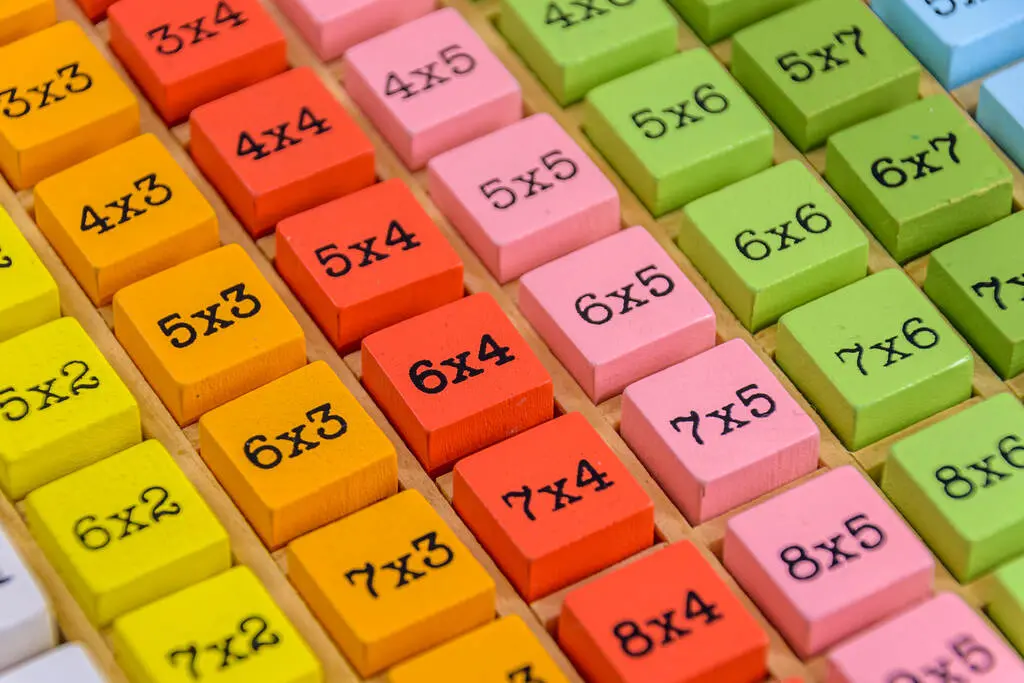Times tables are a basic math skill that kids need to know at a young age.
In this blog post, we will discuss when should kids start to learn about times tables and how to help them learn them.

There is no definitive answer to this question as it depends on a variety of factors, including your child's age, intelligence level, and whether or not you are teaching them at home or in a formal setting.
However, most experts agree that kids begin learning times tables around the age of 5-8. This is when they start to become more aware of their numbers and can start to understand how they work together.
There are many different ways that kids can learn their times tables, and it is up to the parents or teachers to find the best way for each child.
Some schools use a rote memorization technique, while others use games or songs. Some children might prefer learning their times tables with flash cards, while others might like using an app on their phone.
Whatever method you choose, make sure that you are having fun and that your child feels confident about what they're learning.

Kids learning the times tables are important for a number of reasons.
For example, they help children understand the multiplication table and how numbers relate to each other.
They help them to understand the relationship between addition and subtraction. And they help them learn some basic mathematical operations.
Times tables can be a little bit confusing at first, but once kids understand them, they can use them to solve math problems quickly.
Multiplication is one of the building blocks of maths. By learning how to multiply numbers, kids can understand how to do more complex math problems.
Memorising the times tables can make it easier for children to answer multiplication questions in their head. They will be able to use knowledge and skills they’ve picked up over time to help solve any math problem that comes their way.
Memorising the multiplication table is not just a quick method to teach your child arithmetic, but it will also give them a head start when they need to answer maths equations.
This will help them solve problems involving addition, subtraction, division, and multiplication in their head and make memorising multiplication tables worth the time.

Memorising times tables is just one way for kids to learn maths skills. Understanding them can help them learn other concepts. These include fractions and percentages, as well as shapes.
For example, visualising a times table can help kids understand how to solve problems involving division. In the same way, understanding the order of operations can help kids with problem-solving skills in other areas of maths.
It is important that children learn their times tables as early as they can because it will help them in developing other maths skills.
Learning the times tables should not be a chore or something to be avoided. It should be seen as an opportunity to improve mental arithmetic skills, develop a sense of numbers and make connections between numbers, shapes, and figures.
There are many different ways to teach times tables, but the best way is to use a combination of repetition and memorization.
One method is to use flash cards. Students should be quizzed on their times tables every day for about 15 minutes, or until they have mastered them.
Another option is to have students recite them as they do their homework or as they do other tasks around the house.
You can also create games to play with your children that involve using multiplication and division skills. One game involves rolling dice and multiplying the number by a specific number shown on each die.
You can also use a deck of playing cards, divide the cards equally and at the same time place a card down together. eg. 5 and 3 card. The first player to get the answer, in this case 15 keeps both cards.
There are a few things that you can do to help your child learn their times tables.
First, make sure that you are teaching them in a way that is both fun and challenging. This will help them to become interested in the subject and retain the information more easily.
Second, be sure to set a good example for them. This means being diligent with your own times table skills and showing your kids how important it is to have a good understanding of math concepts.
Finally, never give up on your child! Even if they seem difficult at first, with enough persistence they will eventually be able to learn times tables effectively.
Times tables are a basic math concept that kids learn at different ages. Some kids learn times tables before they can talk, while others don't learn them until later in school.
If you are located near Geelong VIC, then iCode School can help your children learn the times table in a fun and easy way.
We offer affordable in-person or online tutoring services for prep and primary students. Our maths tutoring program follows the most up-to-date school curriculum, so you know everything learned will be relevant to your child.
You can book a free assessment, learning consultation, and 2 weeks of free maths and English tutoring today! ($248 value)
This offer is strictly limited to 5 people per week. Call us today on 1300 042 633 to get started.
© 2024 iCode School. All Rights Reserved.
Partnered with Thinkroom